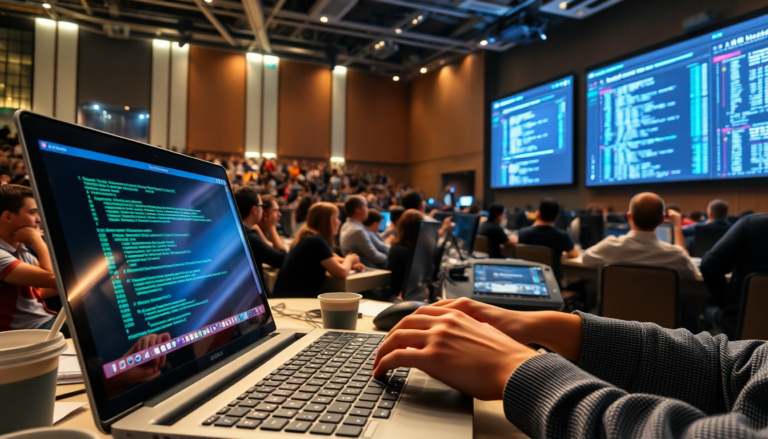In the fast-evolving realm of artificial intelligence, a recent showdown at the AtCoder World Tour Finals (AWTF) has brought an exciting twist to the narrative: a human coder, Przemysław “Psyho” Dębiak, has claimed victory over an AI model developed by OpenAI. This remarkable match, part of the “Humans vs AI” contest in Tokyo, not only showcased Dębiak’s extraordinary skills but also underscored the unique strengths of human reasoning and creativity when it comes to problem-solving.
The Challenge and the Contest
The AWTF is celebrated as a premier stage for competitive programming, where the brightest human minds compete against each other—and for the first time, against an AI. This year’s challenge? Guiding a robot across a complex 30×30 grid in the fewest moves possible. This task is classified as NP-hard, meaning it presents an overwhelming number of potential solutions. Dębiak took an innovative route, emphasizing heuristic problem-solving—leveraging intuition and creative shortcuts rather than relying solely on computational brute force.
After an intense ten-hour coding marathon, Dębiak emerged victorious, outpacing OpenAI’s model by about 9.5%. The contest’s administrator, Yoichi Iwata, praised Dębiak’s distinctive approach. He noted that while AI excels at optimization, it often falls short in creativity—a key component of programming that remains a distinctly human trait. Dębiak himself recognized the grueling nature of the competition, sharing that he had only managed roughly ten hours of sleep over three days while pushing himself to the limit.
Insights into Human Creativity
Dębiak’s victory is more than just a personal triumph; it symbolizes human resilience and ingenuity in an era increasingly shaped by technology. His experience as a former OpenAI engineer, coupled with a solid foundation in competitive programming, equipped him with the necessary skills to tackle the challenges posed by the AI. Using only basic tools like Visual Studio Code, he crafted solutions that were not only efficient but also innovative, proving that human cognition can indeed outshine AI in specific contexts.
This juxtaposition between Dębiak and the AI model highlights an important narrative in the ongoing discussion about machine capabilities versus human abilities. While AI has made remarkable progress—evidenced by a leap in coding benchmarks from a mere 4.4% success rate in 2023 to an impressive 71.7% in 2024—this contest serves as a poignant reminder that human intuition and creativity are irreplaceable assets in problem-solving scenarios that require a nuanced understanding of context and adaptability.
The Road Ahead
Dębiak remains pragmatic about the future, acknowledging that there will inevitably be challenges where AI could outshine humans. Yet, his triumph at the AWTF is a proud moment for humanity, reminiscent of the legendary John Henry tale, where human spirit and creativity outmatch the power of machines. This event not only celebrates Dębiak’s individual accomplishment but also ignites a larger conversation about the interplay between human intellect and artificial intelligence.
As we continue to witness the evolution of AI, it’s crucial to recognize and nurture the unique qualities that define human problem-solving capabilities. Dębiak’s journey offers invaluable lessons about the significance of creativity and adaptability—qualities that will remain essential even as technology advances.

